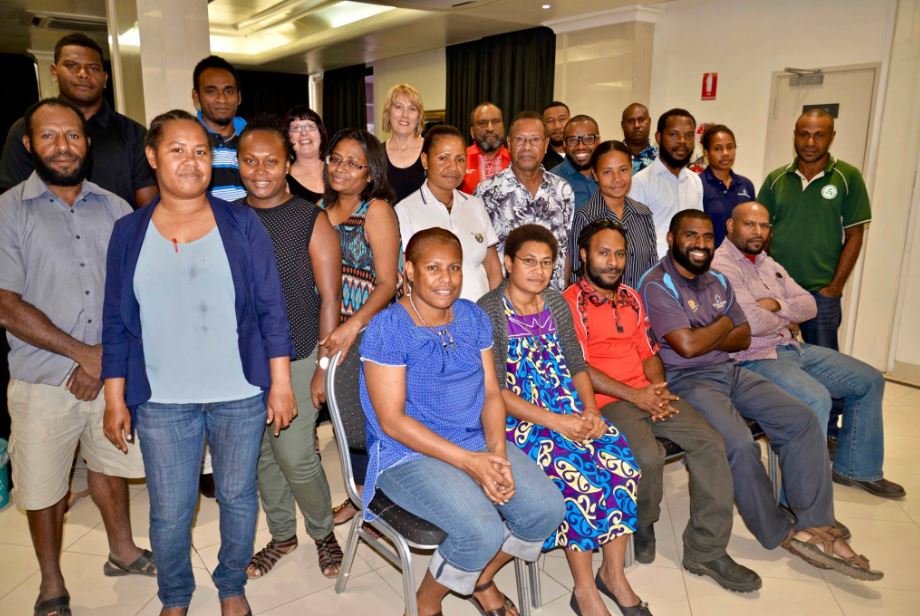
Two aquaculture officers from the National Agricultural Research Institute (NARI) will now be able to conduct their research work on the field more effectively thanks to a capacity building project funded by the Australian Centre for Agricultural Research
Arthur Roberts and Maima Sine were among the first batch of 19 participants from all four regions in Papua New Guinea to successfully complete phase one of the four-unit training.
The rest represented National Fisheries Authority (NFA), Forestry Research Institute, Wildlife Conservation Society, National Fisheries College, University of Technology and the University of Natural Resources and Environment.
Roberts said the training is timely as integrated skills-based especially in research is needed to assist scientists carry out their research work effectively.
He said, ‘We don’t have opportunities for such training to learn these tools and skills to attain a higher level of output in research. The project run by NFA with ACIAR is a vital component in the development of young scientists who lack mentoring and direction towards their career development.’
He said such training helps in overall appreciation of the work scientists do out on the field.
This concept was initiated by the NFA and University of Tasmania (UTAS) to draw out core skills needed in research and project management for scientists and technicians in fisheries research.
The project also aims to design, deliver, and validate a formal accredited training program best-suited for developing capacity in fisheries and further use the experience as a platform which can link students for further studies at the UTAS.
The graduate certificate program was rolled out in February 2014, through an integrated participatory approach to develop research skills while evaluating its benefits.
Outcomes from the first unit focused on identifying learning approaches used and impact as a tool for developing other skills that can be better communicated in the workplace.
The other three units identified were Introductory to Research, Communicating Research, and Research in Action and are scheduled for February 2017.
Most of the participating students were pleased to see a notable exposure towards their career pathways as the there are few opportunities for program-based training within government departments for research and development.
The participants noted that such training can also be linked to specific projects under respective research that will encourage long-term institutional benefits and skills development.
They (participants) said where researchers lack in certain areas, undertaking a participatory approach improves the quality of training and develops self-awareness and confidence.
Project Leaders from UTAS Prof Janelle Allison and Jacob Wani thanked ACIAR for their continued support in capacity building in the country.
Picture: Participants to the ACIAR-funded fisheries research training in Port Moresby
